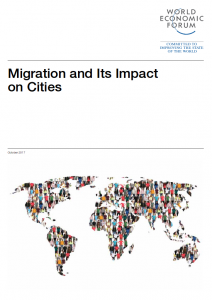Telepolis | 30.10.2017
In der Auseinandersetzung mit Flucht und Migration setzen die europäischen Staaten auf ihre alten Strategien. Sie bauen Abschottungsmaßnahmen aus und machen Afrika zur Beute von Finanzinvestoren
Gabriela Simon
Zwei Jahre nach der großen Flüchtlingsbewegung Richtung Europa schlägt das Thema Flucht und Migration immer noch hohe politische Wellen, in Deutschland und Europa, in Berlin und in den Bundesländern, bei den Rechten und bei den Linken. Dabei hat die europäische Abschottungspolitik mit Hilfe der Türkei und nordafrikanischer Staaten die Zahl der ankommenden Flüchtlinge bereits stark reduziert. 2016 wurden noch 280.000 Menschen als Asylsuchende in Deutschland registriert, von Januar bis September 2017 nur noch 140.000, womit die Seehofersche Obergrenze in diesem Jahr wohl noch nicht einmal erreicht wird.
Die meisten derer, die 2015 in Deutschland ankamen, sind mittlerweile leidlich gut untergebracht und gehen ihre Wege in Ausbildung, in Jobs oder wirtschaftliche Selbständigkeit. Man könnte sich eigentlich entspannen und die verbliebenen Probleme der Flüchtlings- und Zuwanderungspolitik pragmatisch dem politischen Tagesgeschäft überlassen.

